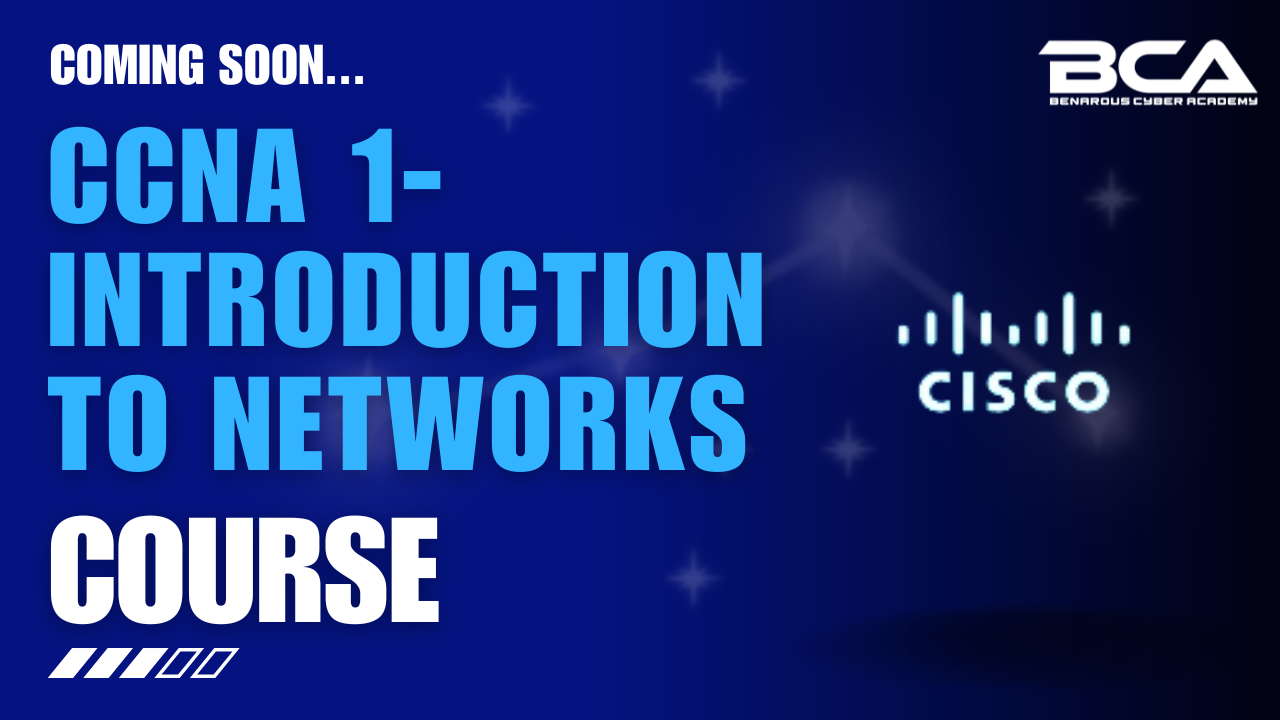CCNA 1- Introduction to Networks

About Course
CCNA 1 v7: Introduction to Networks
- Network Fundamentals:
- Introduction to networking concepts and terminology.
- Overview of network architecture and protocols.
- Understanding the role of networks in business and everyday life.
- Network Access:
- Ethernet LANs: understanding Ethernet standards and technologies.
- Configuring switches and switch interfaces.
- VLANs (Virtual LANs) and trunking: configuration and verification.
- IP Connectivity:
- IPv4 Addressing: understanding IPv4 address types and classes.
- Subnetting: calculating subnets and subnet masks.
- Configuring IPv4 addresses on devices.
- IP Services:
- DHCP (Dynamic Host Configuration Protocol): configuring DHCP server and client.
- DNS (Domain Name System): understanding DNS operation and configuration.
- Security Fundamentals:
- Basic network security: implementing access control lists (ACLs).
- Securing network devices: configuring password security on Cisco devices.
- Automation and Programmability:
- Introduction to network automation: understanding the basics of automation and programmability in networking.
- Using Packet Tracer and Python scripts for network configuration tasks.
- Hands-on Labs and Practical Exercises:
- Practical labs using Cisco Packet Tracer or real Cisco networking equipment.
- Simulations and scenarios to reinforce theoretical concepts.
Prerequisites: CCNA 1 v7 typically assumes no prior networking knowledge or experience. However, familiarity with basic computer operations and terminology is beneficial.
Target Audience: CCNA 1 v7 is aimed at individuals who are new to networking or seeking foundational knowledge in networking technologies. It is suitable for students, entry-level network technicians, and anyone interested in pursuing a career in networking.
Completion of CCNA 1 v7 prepares students for more advanced modules in the CCNA curriculum (v7), building a solid understanding of networking principles essential for network administration and engineering roles. It also lays the groundwork for taking the CCNA certification exam (200-301), validating competency in networking skills required in today’s IT environments.
Student Ratings & Reviews
